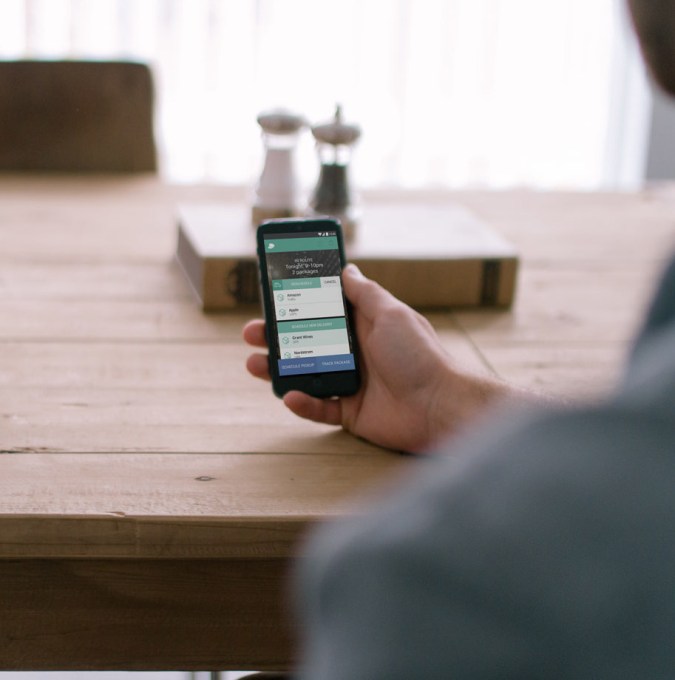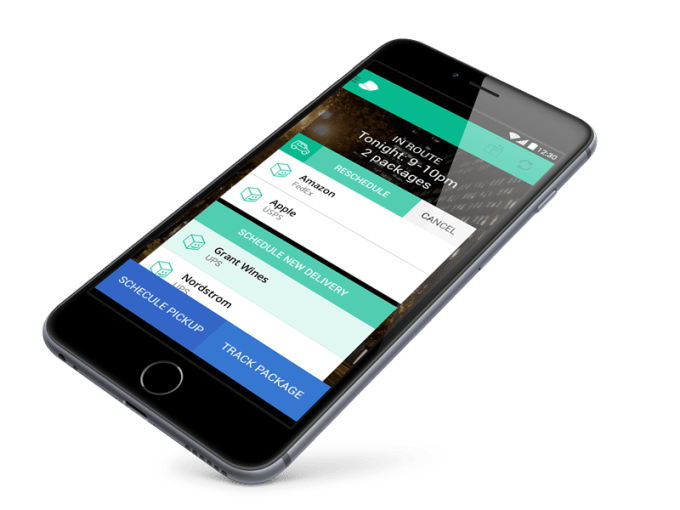Doorman, a company tackling the problem of missed deliveries by allowing consumers to schedule their own deliveries as late as midnight, has now gone live in Chicago and is preparing to soon launch in New York. The expansion comes on the heels of Doorman’s seed funding round from earlier this summer, which saw the company adding $1.5 million to its coffers in order to grow its business.
The idea Doorman wants to solve is fairly common – people are increasingly shopping online, but deliveries, including Amazon Prime’s two-day delivery option, still sees packages arriving at various hours of the day. In some cases, packages are left on doorsteps where they could be stolen, or other times, they’re held until someone can sign, such in the case of high-value electronics or wine. Some consumers work around this problem by having things they buy online sent to them at the office, but this isn’t a good solution for large items that later have to fit in car trunks, or be carried on bikes or public transport.
Instead of taking delivery whenever the shipper, like UPS or FedEx, sees fit, Doorman users provide an online retailer with their personal “Doorman address” (a location in the Doorman warehouse). The company then signs for you and holds the package until you’re ready to receive it. Users are alerted through a push notification in the Doorman app, and can schedule their delivery from 6 PM to midnight, 7 days a week.

The service more recently teamed up with August Smart Lock, a connected door lock that users can control through their phone, allowing Doorman customers to schedule deliveries then allow the Doorman agent one-time, temporary access to their home so they can place their package inside.
Doorman currently offers three pricing tiers, including a $3.99 per package price up to a $29 monthly membership, offering 1-hour delivery windows, plus unlimited deliveries and package returns.
The service, founded by Zander Adell and Kapil Israni in 2013, first arrived in San Francisco, where it has now delivered over 50,000 packages from more than 3,000 retailers. Last year, it also acquired a competitor called Luna, to consolidate the package delivery business in the Bay Area.
Adell declined to say how many customers Doorman now has or how many are active on a regular basis, but he did say that the service grew 50 percent in Q3.
With the expansion ahead of the holiday shopping season, and the plan to arrive soon in New York, Doorman is hoping to capitalize on the large number of e-commerce sales expected this year as it hits these two new markets. In fact, the National Retail Federation is predicting that nearly half of holiday shopping this year will be done online.
“In urban areas, like Chicago, 20 percent of package deliveries fail on the first attempt. This number can be as high as 50 percent in certain zip codes,” notes Adell of the decision to bring Doorman to Chicago.

“Fewer than 7 percent of available apartment rentals in Chicago have a doorman,” Adell continues. “With the holidays coming up, and the general increased popularity of online shopping, co-ops, condos and rental buildings are being forced to reconsider their delivery/storage policies and procedures. As the number of package deliveries increase in cities, but the number of doormen do not, there are increases in the rate of package thefts – the ‘seasonal crime of opportunity’ at the holidays, but really a problem all year round for people who shop online,” he adds.
While Doorman is certainly a more convenient way to schedule package delivery, it is, in a way, facing competition from a number of on-demand delivery and courier services, some of which are available after work hours, including those from Amazon (Prime Now), Instacart (for groceries), UberRUSH, Postmates, Google Express and others. With a growing number of ways to get deliveries fast to your current location, these competitors are chipping away at the need to schedule a home delivery for after work.
That said, these competitors generally offer a limited selection of products or are designed to allow you to shop from local stores – they don’t work with any e-commerce site on the web. That leaves room for Doorman to still grow. But now, the expansion ahead of the 2015 holidays will help to prove whether this is the sort of extra convenience that shoppers are willing to pay for outside of the more tech-friendly San Francisco market.
